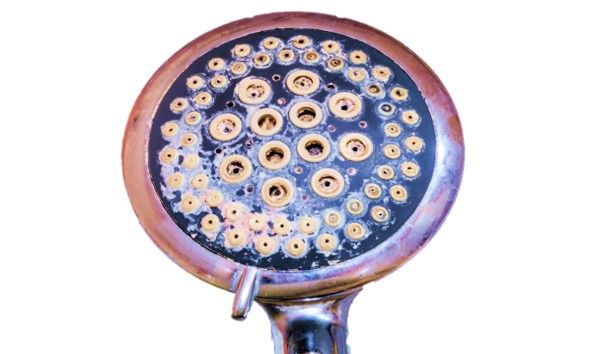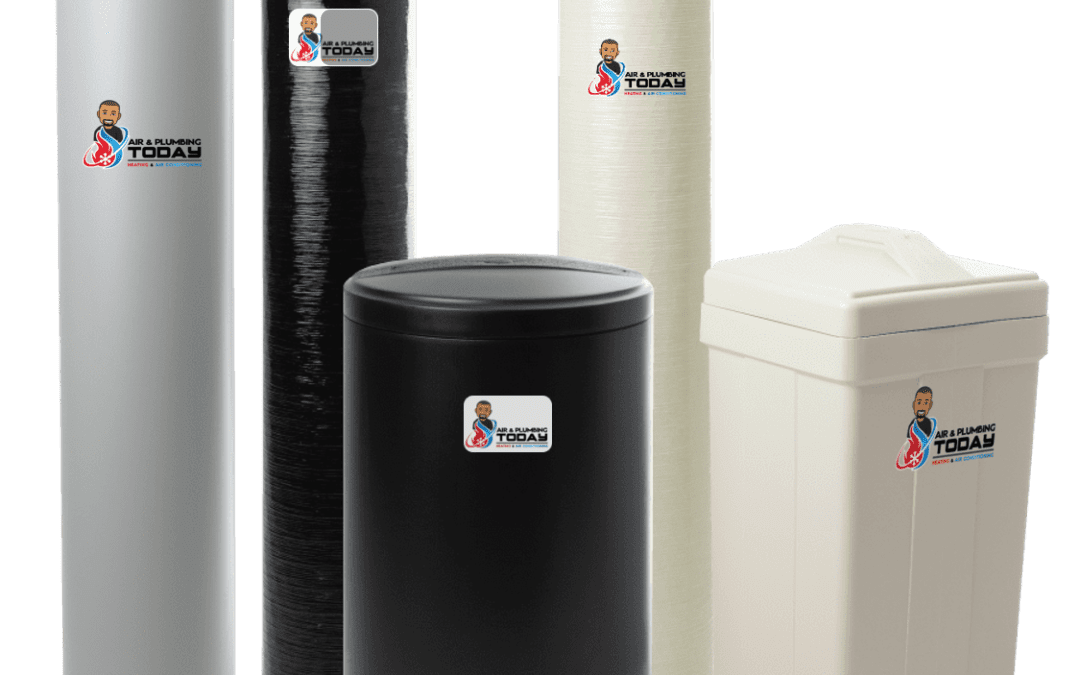How hard is the water in San Antonio and do I need a water softener?
How hard is the water in San Antonio and Do I really need a water softener?
How hard is the water in San Antonio Texas?
San Antonio has such hard water it’s off the charts as most recent water testing shows San Antonio Texas at 357 mg/L or 21 gpg.
Hard water in San Antonio continues to be a challenge for home owners.
How hard is the water in San Antonio Texas in Bexar County?
The United States Geological Survey (USGS) measures water hardness as milligrams of calcium carbonate per liter of water1 and classifies hardness levels as follows:
0 to 60 mg/L= Soft Water
61 to 120 mg/L= Moderately hard water
121 to 180 mg/L= Hard water
More than 181 mg/L= Very hard water
Have you noticed a white buildup on your showerheads? Do your showerheads clog up quite often? San Antonio Texas has some of the hardest water in the nation. Hard water can cause problems in your home’s plumbing and appliances such as dishwashers, washing machines, water heater, washing machine, and is considered a big problem by many San Antonio homeowners. Understanding exactly what hard water is and how it affects your appliances and plumbing can help you determine what needs to be done about it.
What Is Hard Water?
Hard water is used to describe a fresh water supply that contains high amounts of natural minerals including calcium and magnesium. Hard water usually leaves a white gritty stain on your faucets and shower heads, which is an indicator that you have hard, not soft water.
How Does Water Become Hard?
Although rainwater is soft when it falls from the sky, it lands on the ground and the rain soaks through the surface into Edwards Aquifer, it absorbs lime, and other minerals, primarily calcium and magnesium. This absorption changes it from soft to hard water. The amount of mineral content that water contains determines the hardness level of the water. Water hardness is commonly measured in milligrams per liter (mg/L) or grains of mineral per gallon (GPG).
Common Problems with hard water
Hard water is a huge problem because it reduces the effectiveness of cleaning products, creates soap and scum buildup, and can wear down all of your plumbing faucets and fixtures and appliances more quickly than if you had soft water. The minerals in hard water react with soap to create soap scum and reducing how well your cleaners work. This means you need to use more soap with hard water when it comes to washing dishes and doing laundry. The buildup of minerals on your dishes, glasses, clothing, and fixtures can take their cost you serious money over time. Here are some of the common household problems related to having hard water in San Antonio:
-Scale and calcium buildup inside your home’s pipes can restrict water flow
-Hard water film and scale buildup on ceramic tile and fixtures
-Scale deposits can shorten the life of your water heater
-Hard water spots on glasses and dishes washed in the dishwater
-Clothes don’t come out completely clean when washed in the washing machine
-Increased wear on your clothing while washing in the washing machine
What Does San Antonio’s Hard Water Do to Plumbing?
Hard Water buildup on tubs, shower, sinks, and faucets caused by the minerals in hard water are only part of the problem. The minerals in hard water also start to build up inside your pipes, sink fixtures, showerheads, dishwasher and water heater over time. The build-up that you cannot see will start to cause all sorts of plumbing problems, such as reduced water flow, clogs, and increased stress on pipes and fixtures. The mineral deposits can also cause appliances to operate less efficiently and wear down faster. For example, a water heater has to heat all of the mineral scale buildup inside the tank and burn out your electric water heater’s heating element over time. Your water heater will also fill up with these minerals, turning your 40 gallon water heater into a 20 gallon water heater since there’s no more room for water inside. Overall, hard water can result in more costly repairs over time.
Exactly how does hard water damage houshold appliances?
The different appliances and plumbing systems we have are important because they improve the quality of living at home. However, the type of water that a home has may have negative impacts that can be a nuisance to fix. The last thing you need is to regularly repair and replace your appliances, fixtures, and pipes because of the water quality. The water you get can be hard or soft, but most homes have hard water that ruins every appliance you have over time. Read on to learn more about hard water and the negative impacts it has on your quality of life at home.
Why is hard water bad for my home and my appliances?
Hard water may not be a problem for people as much as it’s a problem for plumbing and appliances. When you understand the differences between both types of waters, you will understand that soft water is what you really need at home. There are many advantages to having SOFT water with savings on repair costs being the most beneficial one.
Hard water has minerals that aren’t too harmful to humans, but hard water residue will indeed damage everything glass, plastic, steel, or iron that it comes in contact with. Ignoring hard water and the long term damage it causes isn’t worth it, and you should think of alternatives that can prevent you from constantly replacing machines and appliances that use water.
Coffee Makers & Hard Water
If you use a coffee maker each morning, hard water will clog it up faster than your heartbeat after 4 cups of joe. In fact, any appliance that heats hard water will see the fastest accumulation of hard water minerals and experience clogs. This goes for your old school Mr. Coffee, Keurig and your most expensive models like De’ Longhi, Illy and Nespresso machines that can cost several thousand dollars! Even if you use filtered refrigerator water, it’s still hard and it’s a liquid grim reaper to your favorite coffee machine!
Washing Machines and Hard Water
One of the most used appliances in most homes is the washing machine, allowing you to easily do your laundry and have clean clothes ready without taking them to the dry cleaners. The bigger your family, the more laundry you have to do. Hard water will start building up mineral residue that sticks to every mechanism inside, whether it’s the water pump, lint screen, filter, or washing tubes. Hard Water buildup will damage your washing machine and break it down completely and shorten the life of your washing machine much faster than it should be. Advice from many professional plumbers in San Antonio suggest shopping your options for water softeners that can prevent your appliances from breaking down. This means that you can save money on repairing and replacing your washing machine by having a soft water system instead of doing your laundry. This machine is usually the first to breakdown because it’s one of the most used appliances you have at home. It’s also an appliance that works with heated water which accelerates the mineral buildup process.
Dishwashers and Hard Water
Another water managing appliance that is constantly used at home is the dishwasher, helping your family save time and effort when it comes to washing the dishes. Any good dishwasher should last for at least 9 to 10 years, but it may last longer depending on the brand quality and the water used. Hard water will tremendously decrease that lifespan because scale build-ups, calcium, or magnesium deposits ruin a dishwasher’s mechanisms. You will see a decrease in performance and efficiency when it comes to cleaning your family’s dirty dishes, leading to longer washing cycles that reduce the effectiveness of your dishwasher’s performance significantly. The mineral and scale build-ups will ruin your best plates and glasses too, because hard water minerals will stick to them and make it harder to clean over time. If you have hard water in your home, the heating element in your dishwasher will appear white. Be on the lookout for this.
Residue In Your Dishwasher
With hard water in San Antonio, it’s likely that you’ll start seeing the same residue that coats your dishes also coating the inside of your dishwasher before too long.
Compared to the residue on your dishes, the residue in your dishwasher is a greater cause for concern, as this residue can severely damage your dishwasher if enough of it builds up.
If you want to remove this scale buildup from your dishwasher, one cheap and easy way to do so is with cleaning vinegar.
Just fill a dishwasher-safe bowl or glass with a cup of cleaning vinegar, place it in the dishwasher, and let the dishwasher run once on a short cycle.
This works because cleaning vinegar contains acid, which breaks down the minerals on your water and helps the dishwasher flush them out on its own. You can also use cleaning vinegar in place of a rinse aid when washing your dishes.
Again, while using vinegar is a good way to remove any scale from inside your dishwasher, it’s not a permanent solution to the issue of hard water.
Rust In Your Dishwasher
If you start seeing patches of rust appear on the inside of your dishwasher, this means that your dishwasher has been exposed to hard water for far waaaaaay too long.
Rust is obviously never a good thing to find in your dishwasher; it’s not exactly healthy or sanitary to wash your dishes in rusty water, and dishwasher parts inevitably break when they get too rusty.
Hard water causes rust because some of the minerals in hard water are salts. Saltwater is an electrolyte, meaning it conducts a mild electric charge.
Certain types of metal like iron or steel begin corroding when exposed to water and oxygen, and if an electrolyte is present, the resulting reaction greatly speeds up the rate at which rust forms.
If you notice rust in your dishwasher, your first move should be to replace any parts that have rust on them if you can find the parts. If the damage is too severe, you may have to replace the entire dishwasher.
Rust in your dishwasher means that your water is probably a lot harder than average. In cases like these, the best thing to do is usually to install a water softener. We see rusty dishwashers in San Antonio quite often and these are machines that are only a few years old and should NOT have rust in them.
A water softener is the most cost effective solution since it removes the mineral content from our hard water, “softening” it. A water softener consists of a reservoir filled with resin beads containing negatively charged sodium ions. Calcium and magnesium are positively charged minerals, and opposite charges attract each other.
When hard water flows through the reservoir of a water softener, the resin beads pull the minerals out of the water and keep them trapped in the reservoir. It’s a hassle-free solution to the many problems caused by hard water!
Water Heaters and Tankless Water Heaters
You will notice that your traditional water heater can’t hold enough hot water properly because of hard water. This is because your water heater is filling up with a sand-like substance which is minerals from hard water. Again, any appliance that heats your home’s water will accelerate mineral residue and clogging process. Water heaters are designed to produce high water temperatures for use in bathrooms and kitchens, but efficiency levels will decrease tremendously because of the formation of sediments and mineral deposits within the tank. These harmful particles will get lodged inside the water heater and damage the heating elements and take up space that should be occupied by water. These adverse outcomes will increase heating costs because the water heater will need more energy to function and regulate temperatures. Eventually, your water heater will lose it’s ability to supply hot water to your home at a level that meets your family’s demand. As for tankless water heaters, mineral scale buildup will begin clogging the inside of your endless water heater and reduce the flow of water, causing low hot water pressure and eventually springing a leak and/or burning out the heating element. All of this would be 100% preventable with soft water via a simple water softener.
Faucets and Sinks
The faucets and sinks you have at home will see calcium buildup very quickly because of hard water. The excess mineral buildup and sediments will constrict water flow especially on expensive shower heads, damaging your tubs, showers, sinks, sink faucets over time. If your showerhead is spraying in all different directions due to hard water mineral clogs, imagine what your appliances are going through.
Having a new water softener is the best solution to your problems with appliances and plumbing. The lifespan of major appliances and pipes has decreased tremendously because of hard water, making it a hassle for you to enjoy the comfort of your home. You will spend a fortune if you ignore your home’s hard water. Call Air & Plumbing Today for a free water softener installation estimate today at 210-519-5959.
FREE
1-Year Supply of Salt FREE With a New Water Softener Installation!
3-bags delivered to your home upon installation with additional bags delivered free upon request as needed.
FREE 5 Year Warranty
On All New Water Softener Systems!
100% Coverage on parts and Labor!

(Calcium clogged showerhead from hard water in San Antonio Texas)
Our Offices
3615 Tavern Oaks San Antonio TX 78247
2009 FM 620 N Lakeway, TX 78734
Call or Text Us
Email Us
Hours
24/7 EMERGENCY SERVICE
(A live person always answers)
Our Offices
3615 Tavern Oaks San Antonio TX 78247
2009 FM 620 N Lakeway, TX 78734
Call or Text Us
Email Us
Hours
24/7 EMERGENCY SERVICE
(A live person always answers)
By submitting this form and signing up for texts, you consent to receive messages from Air & Plumbing Today LLC at the number provided regarding your request, updates about appointments and services or promotions and offers, including messages sent by autodialer. Consent is not a condition of purchase. Msg & data rates may apply. Msg frequency varies. Unsubscribe at any time by replying STOP. Reply HELP for help. Privacy Policy & Terms


Recent Comments